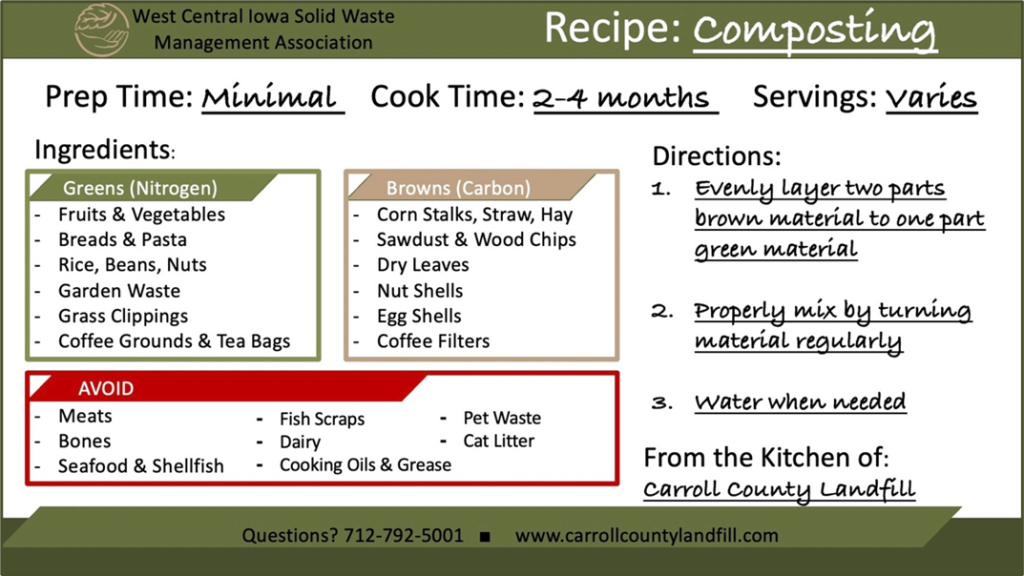Transforms food scraps and lawn & garden waste into a valuable soil amendment.
Preserves valuable landfill space.
Protects the environment.

Classes are available for groups of all ages with simple instruction of available compost opportunities & how to get started. Call 712-792-5001 to schedule a class.
Having the right recipe, preparing your ingredients prior to adding, layering the greens and the browns, providing the right amount of sun, water and flipping is essential for composting success.
